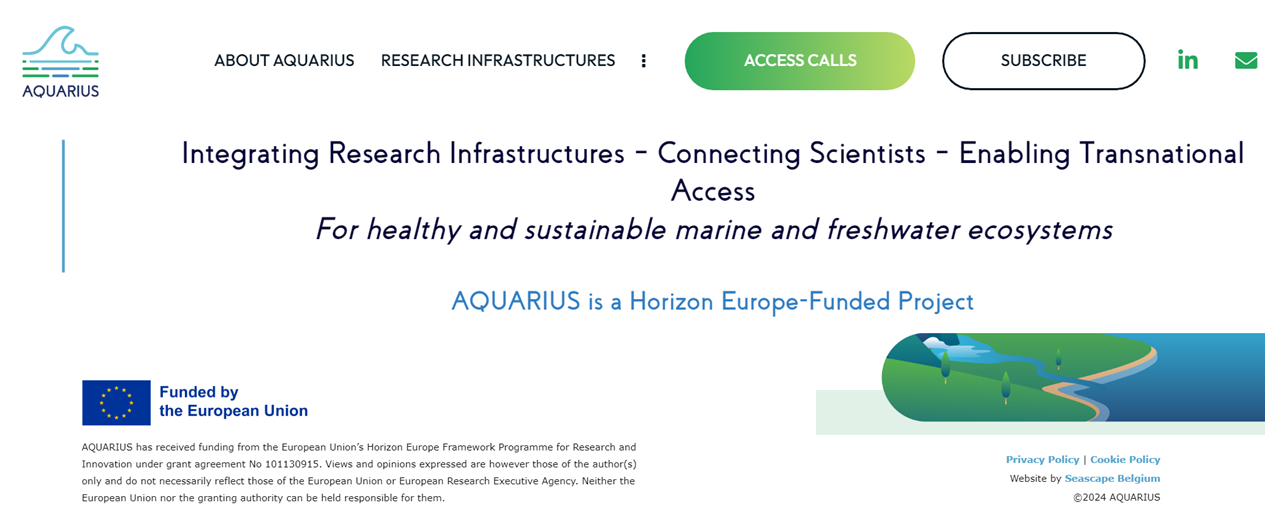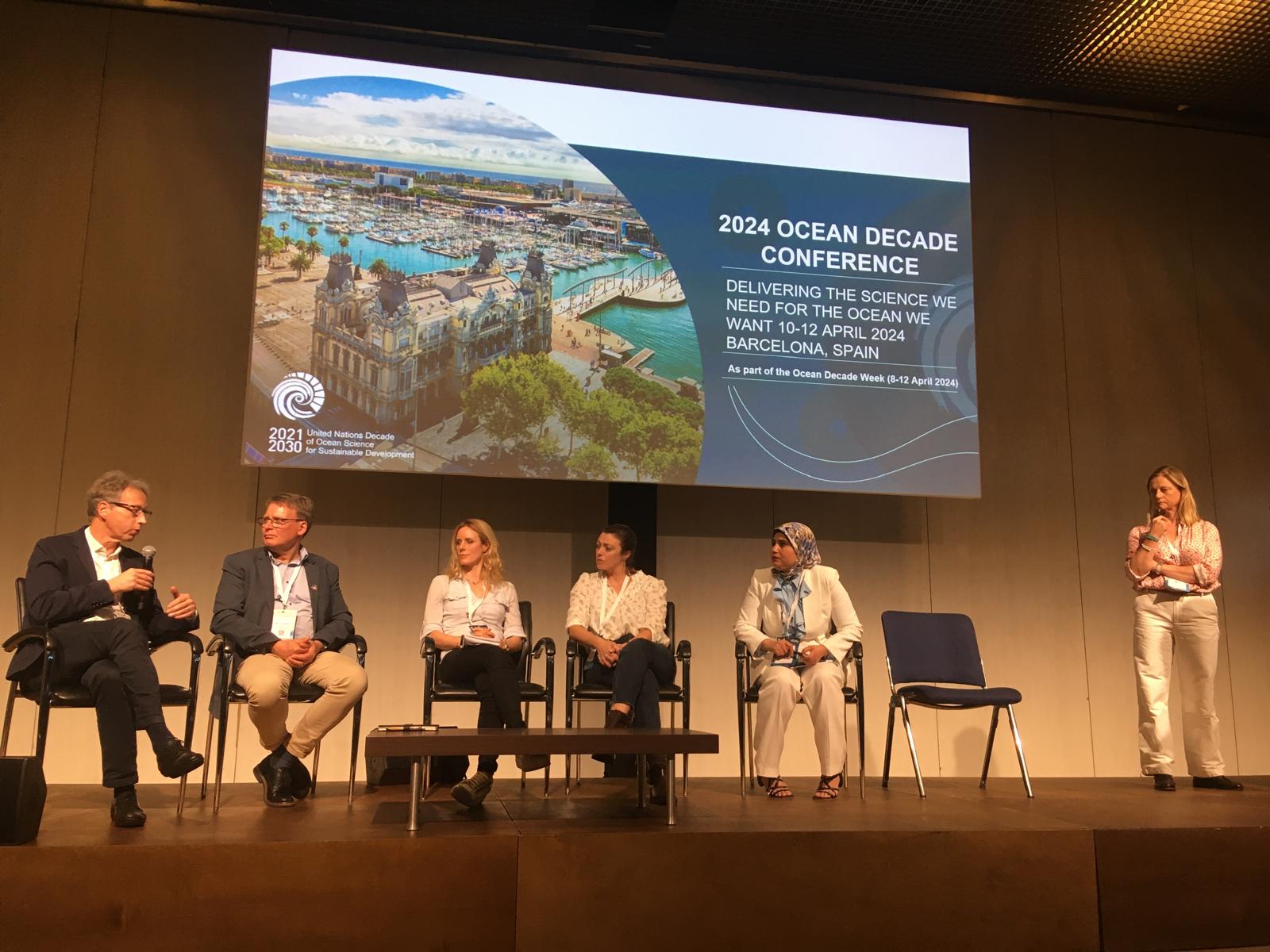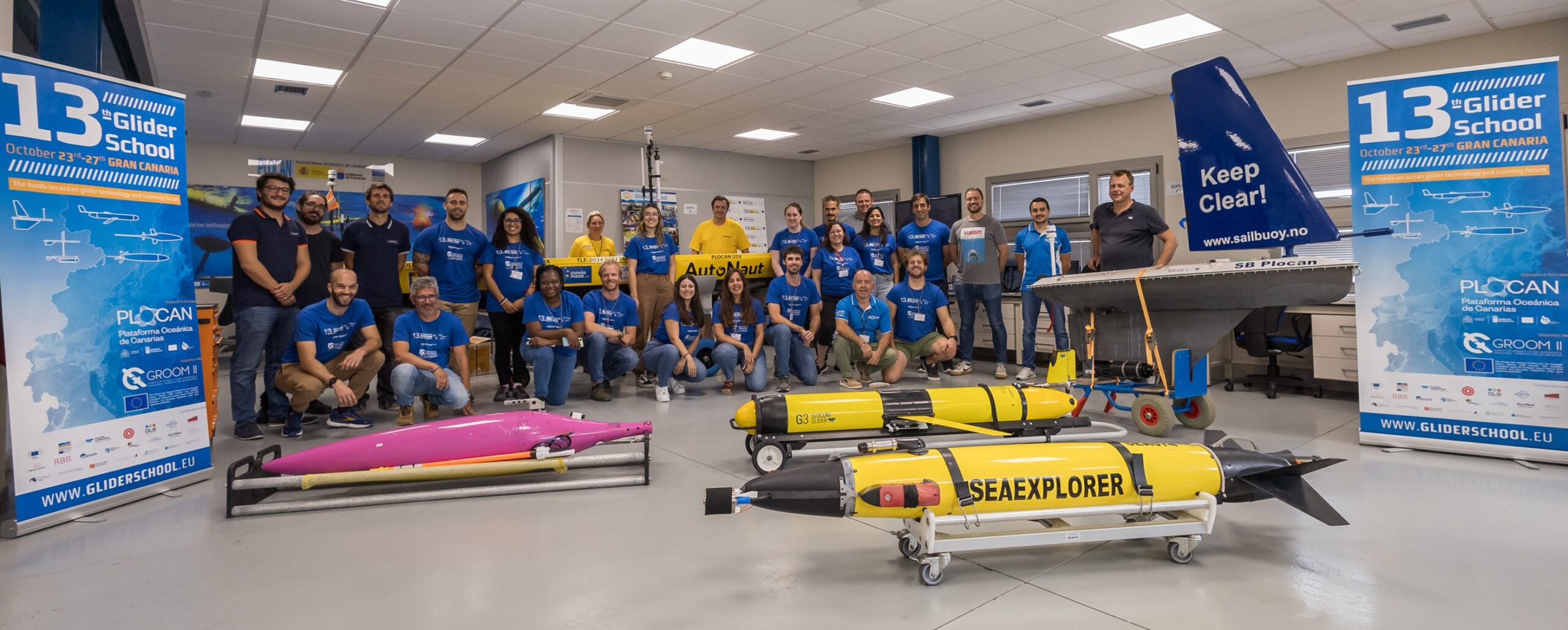An autonomous submarine glider of the fleet of PLOCAN has been put into operation in the waters of A Coruña to monitor the waters of Finisterre for a month within the framework of a scientific mission of ocean observation led by the researcher Manuel Ruiz-Villareal of the Spanish Institute of Oceanography (IEO) in A Coruña, in the context of the European project “Innovation in the Framework of the Atlantic Deep Ocean (iFADO)”.
The glider commissioning, under the coordination of the technical staff of PLOCAN, has been carried out from the Lura oceanographic vessel, which belongs to the fleet of the IEO. After the initial verifications, the autonomous device will head southeast to navigate the approximately fifty miles nautical that separate it from Radial Finisterre, where the mission is scheduled to take place.

The glider has a specific oceanographic sensor configuration designed to collect data on essential physical variables (temperature, conductivity and pressure) and bio-chemicals (dissolved oxygen, chlorophyll and turbidity) from seawater up to a maximum depth of 1000 meters, in order to characterize the study area, serving as a basis for forecasting models and tools, as well as to implement the indicators of the Marine Strategy Framework Directive (DMEM / MSFD).
The mission, for scientific-technical and operational purposes in line with the tasks of the iFADO project, tries to contribute to filling the gaps in marine observation that exist in the Atlantic Deep Ocean, using the DMEM / MSFD and its implementation through the application of innovative products.
The study will take place along the Radial Finisterre located at latitude 43ºN off the Galician coast and covering a length of 200 nautical miles, and will continuously follow the phenomenon of deep water outcrop at high frequency through the continental slope, which during summer generates highly productive filament-shaped structures in shallow areas of the water column. The study of these structures is of high interest and associated impact in sectors such as fisheries.
The IEO has been developing the “Radiales” marine observation program since the end of the 1980s, which establishes a series of fixed stations on the coastal platform throughout the Spanish geography in which a set of hydrographic and biological parameters are sampled monthly. In 2003 a time series of specific campaigns began, including six-monthly hydrographic samplings in two standard transects perpendicular to the coast of Finisterre and Santander, covering the entire water column up to about 5000m deep, with the aim of extending the sampling to the oceanic zone.
iFADO is a four-year project, funded by the EU-Program Interreg Atlantic Area through its 2016 call. It is coordinated by the Instituto Superior Técnico (IST) of Portugal, with the participation of twenty partners from public and private sectors representing Portugal, Ireland, United Kingdom, Spain and France. For its execution, iFADO combines ocean monitoring both on-site and remote through conventional systems and methodologies with cutting-edge technologies highlighting autonomous platforms such as ocean gliders. PLOCAN is responsible for work package five, dedicated to emerging technologies for on-site ocean monitoring, in which this mission is framed.





